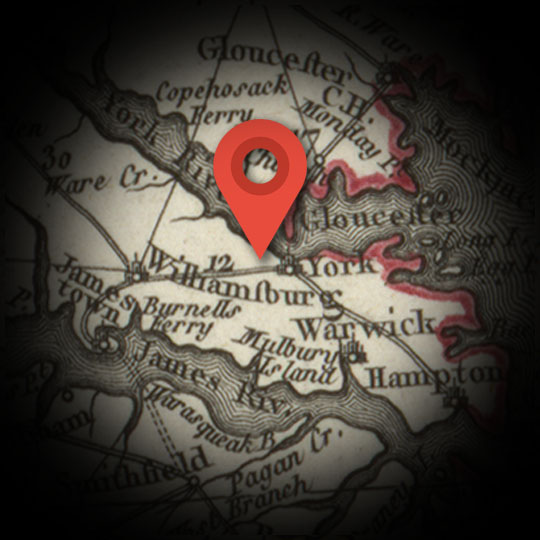BATTLE OF YORKTOWN
Explore
Anticipation was building like cumulonimbus clouds when Hamilton arrived in the rebel forces’ Yorktown camp around October 10, 1781. The American patriots and their French allies had been on the move since August, positioning themselves strategically around the small settlement of Yorktown, Virginia, where Lord Cornwallis’s troops had been resting.
The major movements of the battle began in late September—which also saw the first exchanges of gunfire from both sides. The British, in a bad situation and desperately in need of reinforcements and supplies, hunkered down for a defensive operation.
A siege warfare operation commenced, made possible by French military know-how garnered from centuries of land wars in Europe.
Hamilton and the battalion he commanded petitioned earnestly for a significant mission. Hamilton didn’t just want to win the war: he wanted battlefield glory he could leverage the rest of his life in his quest to achieve personal and political greatness and relevance.
In “the squeaky wheel gets the grease” style, he was placed at the head of an operation to neutralize one of the outer guardhouses, or redoubts, lying between the attackers and the main body of defenders inside Yorktown. The mission to take out Redoubt #10 was given the green light on the night of October 14, 1781.
Hamilton led his men stealthily through mostly French-dug, zigzagging trenches. He participated directly in storming the hardened enemy position in a frenzied clash of bloody, hand-to-hand fighting. It was over in ten minutes, and a decided success.
Hamilton’s efforts were necessary tactical steps. His courage in confronting danger was unimpeachable. The act of heroism was, however, in no way decisive in a vacuum. Hamilton did, however, make a legitimate contribution to the humiliating British surrender that was tendered less than 48 hours later.
Hamilton immediately wrote his pregnant wife Elizabeth that he would be leaving for Albany in two days to see her.
“Adieu My Charming beloved wife, I kiss you a thousand times, Adieu.”

TIME FRAME:
October 10-16, 1781